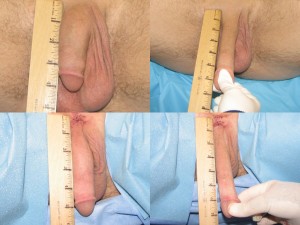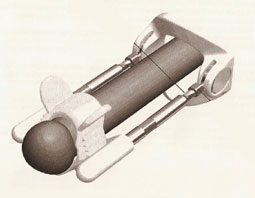How is Penis Lengthening Done?
Did you know that only two thirds of the penis extends beyond the body? Inside the body cavity, there is roughly another 8-10 cm of length (keep in mind that the average penis, in America, is roughly 13cm), which is suspended from the pubic bone by tissues called ligaments. The suspensory ligament and fundiform ligament anchor the external tissue to the body.
When these ligaments are freed surgically by using careful incisions placed just above the penis, the penile shaft can achieve approximately 2-3cm in a flaccid or non aroused state, making the appearance of the limp penis much greater. Gains in erect position vary considerably but can be equal or greater in size.
To prevent the ligaments from contracting during the healing period, a device called the Helping Hand Extender is employed until the healing is complete. The use of this device does not replace penis lengthening surgery nor is it advised to replace the medically crafted device by employing other techniques such as “jelqing” or tying weights to your penis, which can tear and irrevocably damage the ligaments, tissue and impede healthy blood flow.
Although there have been concerns about releasing these ligaments for fear of damaging the proper elevation of the penis once severed, it has been discovered, after years of surgery that the elevation of the penis is determined by pressure within the spongy tissues, not the effect of the ligaments themselves.
This procedure is extremely safe and virtually never creates any problems when proper use of the helping hand extender is employed after surgery.
For Further information on lengthening your penis, contact Dr. Stephen X. Giunta Toll Free (within the US) for a free half hour telephone consultation at 1.855.868.5566

